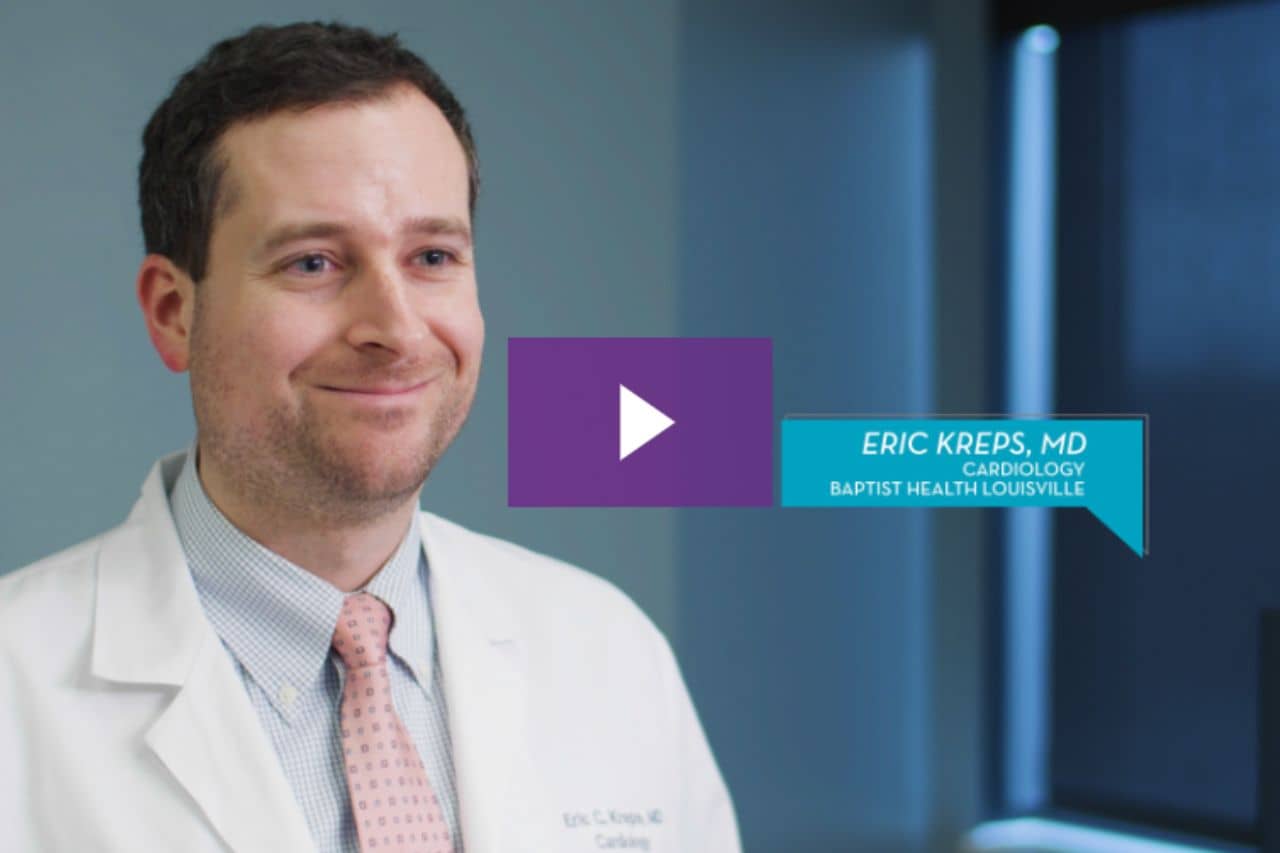Living with Chronic Heart Failure
Baptist Health Louisville: Living with Chronic Heart Failure
Chronic heart failure is a condition that can’t be cured, although it can be treated and maintained with the help of medical experts. Learn how Baptist Health helps patients live a full life with chronic heart failure.
Living with Chronic Heart Failure HealthTalks Transcript
Anna Laura Trimbur, APRN, Cardiology:
Heart failure is a chronic condition in which the heart cannot for some reason supply enough blood to meet the needs of the body and the tissues in the body. It can be either a pumping problem or a filling problem, or sometimes a combination of both. It’s a chronic disease. There’s no cure for it.
One of the first signs that you’re picking up extra fluid in your body, which is a cardinal sign of heart failure, is when your weight jumps up rapidly. In heart failure, the heart is not able to do its job. The body interprets that as not enough volume in the body, so you retain water and sodium, and your weight goes up.
The important things for heart failure patients to do to take care of themselves are to take medications as they’re prescribed, because those are very important to stop or slow down the progression of the disease. It’s very important for heart failure patients to watch the sodium in their diet. We want to restrict that to about two to three grams of sodium a day. Exercise — when the doctor has cleared you for exercise, it’s important to be as physically active as you’re able and to rest frequently when you need to.
At Baptist Health Louisville, we spent a lot of time educating our patients. It’s very important that patients learn to do what they can to take care of themselves. In that way, we can optimize the quality of life and reduce the symptom burden and sometimes, we can either slow down or stop the progression of the disease.
Have you ever wondered how healthy your heart is? This quick heart health risk assessment can compare your actual age to your heart’s biological age, as well as calculate your risk of developing cardiovascular disease.



